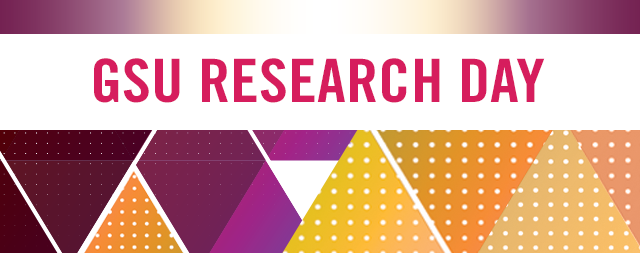Type of Presentation
Event
Location
D34005
Start Date
4-7-2017 1:50 PM
End Date
4-7-2017 2:20 PM
Abstract
Research undertaken by GSU faculty and students has been disseminated since the first graduate student capstones were written in 1975. From 1975 until 2010, Graduate student research in the form of theses and capstone projects have been disseminated by circulating single copies through the University Library or by accessing research copies in the University Archives. Faculty have disseminated their research through traditional scholarly venues, such as conference presentations, published proceedings, peer reviewed journal articles, and monographs. Working papers, white papers, and research reports from University faculty teams and campus units were deposited in the University Library archives, never to be seen again. In 2014, the campus joined the Digital Commons Network of digital repositories, which offers new possibilities for increasing the dissemination and impact of University scholarship, and the publications of scholarly journals and open-source textbooks and monographs, as well as multimedia and creative works. Since June 2014, digital student capstones and theses, and faculty research articles, presentations, and working papers have been downloaded tens of thousands of times from around the world. In 2016, the International Undergraduate Journal of Service Learning, Leadership, and Social Change migrated to the OPUS repository, increasing the visibility and impact of undergraduate authors who publish in this scholarly journal. This presentation will share GSU experience with OPUS and the results so far, focusing on faculty and student research dissemination. New possibilities for disseminating research results, and research data sets will be explored.
Presentation File
wf_yes
Start Here, Go Far: Disseminating GSU Research through GSU’s Open Portal to University Scholarship (OPUS)
D34005
Research undertaken by GSU faculty and students has been disseminated since the first graduate student capstones were written in 1975. From 1975 until 2010, Graduate student research in the form of theses and capstone projects have been disseminated by circulating single copies through the University Library or by accessing research copies in the University Archives. Faculty have disseminated their research through traditional scholarly venues, such as conference presentations, published proceedings, peer reviewed journal articles, and monographs. Working papers, white papers, and research reports from University faculty teams and campus units were deposited in the University Library archives, never to be seen again. In 2014, the campus joined the Digital Commons Network of digital repositories, which offers new possibilities for increasing the dissemination and impact of University scholarship, and the publications of scholarly journals and open-source textbooks and monographs, as well as multimedia and creative works. Since June 2014, digital student capstones and theses, and faculty research articles, presentations, and working papers have been downloaded tens of thousands of times from around the world. In 2016, the International Undergraduate Journal of Service Learning, Leadership, and Social Change migrated to the OPUS repository, increasing the visibility and impact of undergraduate authors who publish in this scholarly journal. This presentation will share GSU experience with OPUS and the results so far, focusing on faculty and student research dissemination. New possibilities for disseminating research results, and research data sets will be explored.


Other Presentation Disciplines:
Paul Blobaum, M.A., M.S., is Professor, and Liaison to the College of Health and Human Services, University Library. He is also the administrator of OPUS, the GSU digital repository.